Participants

Amy Bernard
The Kavli Foundation
Director, Life Sciences
Amy Bernard is head of strategy and programs for nanoscience and neuroscience divisions of The Kavli Foundation. Prior to joining The Kavli Foundation in 2021, she led the office of Science and Technology at the Allen Institute, and led Research & Development and Structured Science divisions for the Allen Institute for Brain Science. She also served as Product Architect for the widely used brain-map.org portal to deliver open data and tools to the research community. Dr. Bernard’s own research explored gene regulation and signal transduction underlying vertebrate brain development at the Allen Institute and the University of Washington. She received a Ph.D. in Biophysics and Genetics from the University of Colorado and has authored over 80 publications in neuroscience, molecular genetics, cell biology, biochemistry, imaging, physiology and open science.

Carlos Andrés Botero
The University of Texas at Austin
Associate Professor, Department of Integrative Biology
I use tools from ecology and evolutionary biology to explore how life, from bacteria to humans, copes with and adapts to repeated environmental change. Using theoretical models, large-scale comparative analyses, and experiments in the lab and the field, my research seeks to uncover general principles in biology and shed light into the mechanisms that drive them. My current work focuses on the evolution of cognition as a potential adaptation to environmental stochasticity and investigates how this process has shaped the subsequent ecology and evolution of vertebrate (mainly avian) lineages.
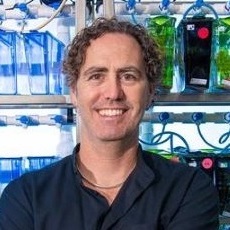
Culum Brown
Macquarie University
Professor, School of Natural Sciences
Culum has made a significant contribution to the study of behavioural ecology of fishes over his research career. His research niche lies in the study of fish behaviour and its application to fisheries science with his most significant contribution being enhancing our understanding of fish cognition and behaviour. Culum is a well-known champion of fish intelligence, sentience and welfare. All but six of his 160 peer reviewed papers and one book chapter have fishes as the primary focus. Collectively his publications have been cited over 9400 times and he has an H-index of 48. He is in the top 2.5% of researchers in Research Gate.
Culum has worked with a wide variety of model organisms including salmonids, sticklebacks, rainbowfish, guppies and sharks. Much of his PhD research at the University of Queensland (2000) and post docs at Cambridge University focused on predator recognition and the social behaviour of fishes with a particular emphasis on social learning. His two reviews of social learning in fishes have been cited over 500 times each. Culum has applied his knowledge of fish cognition to enhancing the post-release survival of hatchery-reared fish (life-skills training). His review of this topic has been cited 450 times and life-skills training is now common practice in hatcheries world-wide. He has increasingly turned his attention to sentience and welfare.
Culum was the guest editor of a special issue on learning and memory in fishes in the review journal Fish and Fisheries. This collection of work was later released as a book entitled Fish Cognition and Behaviour published in 2006 & 2011 by Blackwell Scientific. He is also Editor of The Journal of Fish Biology.

Catherine Emily Carr
University of Maryland
Distinguished University Professor
Catherine Carr is Distinguished University Professor at the University of Maryland. She earned her B.S. (Hons.) Zoology from the University of Cape Town in 1977 and her Ph.D. in Neuroscience from UCSD in 1984 under the supervision of Walter Heiligenberg. She received the Society for Neurotheology Young Investigator prize in 1984, and completed a postdoctoral fellowship at Caltech in 1987 with Mark Konishi, where she worked on sound localization in barn owls. She received an Alfred P. Sloan Research Fellowship in 1988. She joined the University of Maryland, College Park in 1990. There, she and her students study temporal coding in birds and reptiles. She has also worked at the Marine Biological Laboratory. She directed the Neural Systems and Behavior course from 2000-2004, and the Grass Foundation Lab from 2005-2008. She received a Humboldt Senior Research Prize (2004, 2011), became a fellow of AAAS in 2012, and a fellow of the International Society for Neuroethology in 2018. In 2015, she was named Doctoris honoris causa by the University of Southern Denmark. She is currently President of the Grass Foundation.

Eleanor Caves
University of California, Santa Barbara
Assistant Professor
Dr. Caves earned her B.A. in Biology from Pomona College, Claremont, CA, M.Phil in Zoology from the University of Cambridge, and Ph.D. in Biology from Duke University, where she began studying the visual ecology of cleaning mutualisms with a focus on the visual capabilities of cleaner shrimp and client fish, and the implications of those visual capabilities for signaling to mediate these intriguing interspecies interactions. As a post-doc at Duke University, she began to study perceptual mechanisms by which continuous variation in a signal is perceived non-linearly, with a focus on categorical perception of color in zebra finches. She then was awarded a Marie Sklodowska-Curie Fellowship at the University of Exeter, where she studied proportional processing of size-based signals in swordtail fish. Dr. Caves started her appointment in the Ecology, Evolution, & Marine Biology Department at the University of California, Santa Barbara in 2021. Her lab investigates visual perception in animals by studying links between signaling behavior and signal form, sensory physiology, perceptual processing, and behavioral outcomes across species.
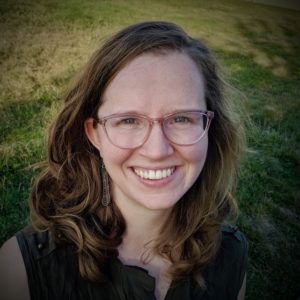
Oriana Chegwidden
CarbonPlan
Research Scientist
Oriana is a climate scientist committed to conducting impactful, equitable science. Her expertise is in large scale modeling of climate change impacts on the land sector- floods, droughts, and forest fires. She is an alum of AmeriCorps, where she worked to support immigrant rights. She holds a PhD in Civil and Environmental Engineering from the University of Washington and a BS in Chemistry from Haverford College.
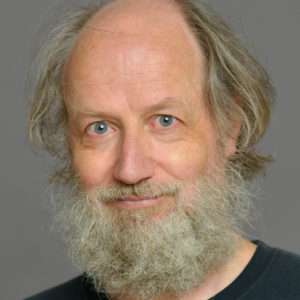
Lars Chittka
Queen Mary University of London
Professor of Sensory and Behavioural Ecology
Prof. Lars Chittka studied Biology in Berlin and completed his PhD studies under the supervision of Randolf Menzel in 1993. An Adjunct Assistant Professor at Stony Brook University, USA until 1997, he then became an Assistant Professor at Würzburg University, Germany, where he completed his habilitation in 2000. He is now a full professor at Queen Mary University of London, where he founded a new Research Centre for Psychology in 2008 and was its scientific director until 2012. He has carried out extensive work on the behaviour, cognition and ecology of bumble bees and honey bees, and their interactions with flowers. His discoveries have made a substantial impact on the understanding of animal intelligence and its neural-computational underpinnings. He has published over 250 peer-reviewed articles and has been an editor of biology’s foremost open access journal PLoS Biology since 2004. He is an elected Member of the German National Academy of Sciences (Leopoldina), a Fellow of the Linnean Society and Royal Entomological Society, as well as the Royal Society of Biology

M. Denise Dearing
National Science Foundation (NSF)
Biological Sciences Division Director
Dr. Dearing is the Division Director of Integrative Organismal Systems (IOS) in the Biology Directorate of the National Science Foundation. IOS supports research aimed at improving an understanding of organisms as integrated units of biological organization, and particularly encourages research that is integrative and interdisciplinary, and seeks breakthroughs in the areas of phenotypic plasticity and organismal resilience. It includes the Behavioral Systems Cluster and the Neural Systems Cluster, and recently released a solicitation to understand organismal response to climate change. Dr. Dearing is a physiological ecologist whose research program at the University of Utah focuses on understanding how herbivorous mammals deal with dietary toxins. An outstanding question in this area is how herbivores regulate their intake of toxins ingested on a per meal basis.
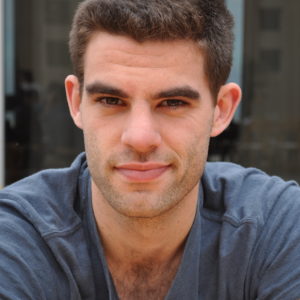
Benjamin Dichter
CatalystNeuro
Neuro-data Scientist and Founder
Dr. Benjamin Dichter is the Community Liaison for Neurodata Without Borders (NWB), a data standard started by The Kavli Foundation to facilitate data sharing and collaboration among neuroscientists. He is also co-PI of a BRAIN Initiative award for the dissemination of NWB. Dr. Dichter is the Founder of CatalystNeuro, a company that develops software and works directly with users in neurophysiology research groups, helping them share data and software with each other. CatalystNeuro is now helping to build a cloud-enabled software ecosystem around NWB, including the DANDI Archive, which now holds over 100 NWB datasets, and various visualization, processing, and analysis tools across neurophysiology domains. Their goal is to guide the neurophysiology community into a technological and cultural shift where researchers will be able to meet their goals through secondary analysis of existing data.
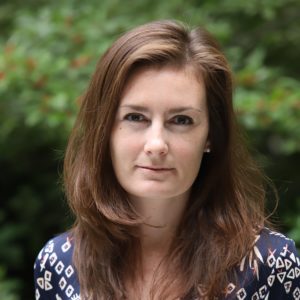
Laura Duvall
Columbia University
Assistant Professor
Laura received her B.A. in Biochemistry and Biological Basis of Behavior from the University of Pennsylvania in 2007. She then went on to complete a PhD with Paul Taghert at Washington University in St. Louis studying the neuropeptide regulation of circadian behavior in Drosophila. She conducted postdoctoral research with Leslie Vosshall at the Rockefeller University where she switched her studies to the Aedes aegypti mosquito and focused her research efforts on understanding the regulation of feeding and mating behaviors in the mosquito.
She started her own lab at Columbia University in 2019 where she is a member of the Department of Biological Sciences and an affiliate of the Zuckerman Institute. She is the recipient of a 2020 Beckman Young Investigator Award, a 2020 Klingenstein-Simons Fellowship Award in Neuroscience, and she is a 2021 Pew Scholar in Biomedical Sciences. Research in the Duvall Lab focuses on understanding how mosquitoes regulate their attraction to bite humans and how mating behavior is controlled by and within cross-species interactions. These findings may contribute to new vector control strategies by "weaponizing" these pathways against mosquitoes and could help inform more effective application of mosquito control techniques that are already in use.

María de la Paz Fernández
Barnard College, Columbia University
Assistant Professor of Neuroscience
María de la Paz Fernández is an assistant professor of Neuroscience at Barnard College, an affiliate member of the Columbia Zuckerman Institute, and faculty in the Columbia doctoral program in Neurobiology and Behavior. She completed a Ph.D. in Biological Sciences from the University of Buenos Aires, working on structural plasticity in Drosophila circadian pacemaker neurons, under the supervision of Fernanda Ceriani. She conducted postdoctoral research with Edward Kravitz at the Department of Neurobiology at Harvard Medical School, working on the triggers of male aggression in Drosophila. She was named a Pew Latin American Fellow in 2008 and received an Alice and Joseph Brook Fund Postdoctoral Fellowship and an International Society for Neuroethology Young Investigator Award. Her current research is focused on understanding how differences in the neuronal architecture of the timekeeping system in the Drosophila brain underlie sex differences in sleep/wake cycles.
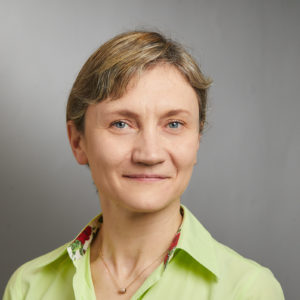
Elena Gracheva
Yale School of Medicine
Associate Professor of Cellular & Molecular Physiology & Neuroscience
I am a biochemist and neurophysiologist by training. My lab is studying molecular and cellular mechanisms of hibernation—an enigmatic physiological phenomenon present in many animals. Hibernation was first documented by Aristotle in 350 BCE, who noted that some creatures give up eating and drinking, and conceal themselves in a sleep-like state for many months to pass winter. At its root function, hibernation employs a collection of incredibly flexible physiological adaptations, which allow animals to thrive in inhospitable environments, where they experience thermal challenges and scarcity of food and water for extended periods of time. Hibernators are present in almost all mammalian orders, suggesting that it results from modification of existing traits common to all mammals.
I believe that understanding and mimicking nature’s ingenuity that enables hibernation will have multiple and far-reaching implications for humanity. This includes the development of novel approaches to improve organ transplantation, recovery from ischemia, stroke or brain injury. Moreover, harnessing hibernation will enable long-time space travel, such as that required for human missions to Mars. This is a highly ambitious (yet achievable) goal, which will mark a pivotal milestone for humankind. At this moment, we know very little about the nature of long-term hibernation. Our lab’s studies will provide fundamental information about this process.
Currently, my lab is pioneering the area of hibernation with regard to cold tolerance, thermoregulation, starvation and fluid homeostasis using two animal models—thirteen-lined ground squirrels and Syrian hamsters.
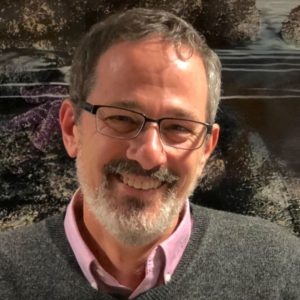
Paul Katz
University of Massachusetts Amherst
Professor and Director of Neuroscience
Paul Katz is a professor of Biology and the director of the Initiative on Neurosciences at the University of Massachusetts Amherst. He has served as president of the International Society for Neuroethology and as co-director of the Neural Systems and Behavior summer course at the MBL in Woods Hole. His research has focused on the evolution and operation of neural circuits underlying behavior. In particular, he has work for the last 25 years on the central pattern generators underlying swimming in nudibranchs. These animals are distributed in oceans around the world and feed on cnidarians. Since moving to UMass in 2017, he has been developing the nudibranch, Berghia stephanieae as an experimental animal that can be raised in the laboratory. He is using single neuron RNA sequencing to create a neuronal atlas and volume electron microscopy to create a connectome.
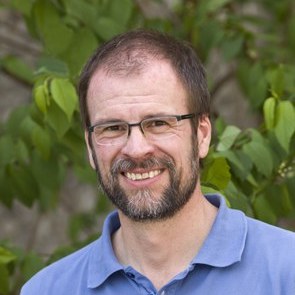
Rüdiger Krahe
Institute for Biology, Humboldt-Universität zu Berlin
Professor of Behavioral Physiology
In his early work, Rüdiger Krahe studied acoustic communication behavior and auditory processing in grasshoppers. After his dissertation, he switched to working on the active electrosensory system of weakly electric fish. In 2004, he joined the faculty of the Biology Department at McGill University in Montreal, from where he moved to Berlin in 2017. His group is interested in understanding the evolutionary constraints shaping sensing and communication behavior and their underlying physiological mechanisms. For several years, a particular focus has been on the effects of dissolved oxygen levels on the behavior and sensory acquisition in electric fish combining field work and acclimation studies in the lab. Methodological approaches range from tracking the behavior of African and American weakly electric fish in their natural habitats to respirometry, behavioral experiments and electrophysiology.
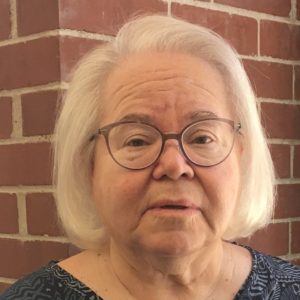
Eve Marder
Brandeis University
Victor and Gwendolyn Beinfield Professor of Biology
Eve Marder, the Victor and Gwendolyn Beinfield University Professor at Brandeis U. B.A, Brandeis 1969. Ph.D. UCSD, 1974. Postdocs: U. Oregon and Ecole Normale Superieure, Paris, France. President, SfN (2008), member of the National Academy of Sciences, National Academy of Medicine, and American Academy of Arts and Sciences. Gruber Prize, Kavli Prizes, and NAS Neuroscience Prize. Honorary doctorates, Bowdoin College, Tel Aviv University and Princeton University. Marder studies the dynamics of small neuronal networks, and demonstrated that neuronal circuits are not “hard-wired” but can be reconfigured by neuromodulatory neurons and substances to produce a variety of outputs. With Larry Abbott, her lab developed the dynamic clamp and they pioneered studies of homeostatic regulation of intrinsic membrane properties. Marder now studies how similar network performance can arise from different sets of underlying network parameters, with its relevance for differential resilience in the population.
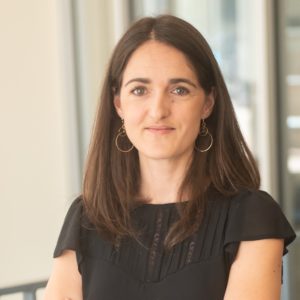
Christine Merlin
Texas A&M University
Associate Professor
Christine Merlin is an Associate Professor in the Department of Biology at Texas A&M University. Her lab pioneered the migrating monarch butterfly as a non-traditional genetic model system to study the molecular and neural bases of circadian rhythms and seasonal rhythms, as well as migratory flight orientation and magnetoreception. She has received a Klingenstein-Simons Fellowship in the Neurosciences, a Junior Faculty Research Award from the International Society for Research on Biological Rhythms, a Konopka Research Innovation Award from the Texas Society for Circadian Biology and Medicine, and is a Texas A&M University Presidential Fellow.

Angie Michaiel
The Kavli Foundation
Science Program Fellow
Angie Michaiel, PhD is a Science Program Fellow at The Kavli Foundation. In this role, she explores emerging themes and opportunities within neuroscience to help the team design programs that reflect the scientific needs of the neuroscience community. She is primarily focused on exploring how studies of neurobiology and changing ecosystems may have lasting scientific impact for neuroscience.
Dr. Michaiel’s background is in sensory neuroscience. She received her PhD at the University of Oregon in the lab of Dr. Cris Niell where she studied impacts of serotonergic neuromodulation on visual coding as well as gaze control during ethologically relevant behaviors. She completed postdoctoral work in the lab of Dr. Bob Datta at Harvard Medical School where she investigated multisensory integration in neural circuits.
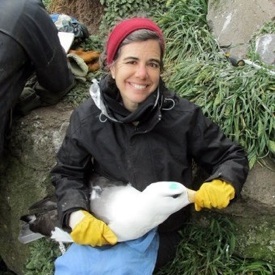
Gabrielle Nevitt
University of California, Davis
Professor
Dr. Nevitt is trained as a sensory ecologist, and she has been studying olfactory-mediated behaviors in marine animals for most of her career. Dr. Nevitt has worked extensively on olfactory imprinting and homing in salmon as well as sensory mechanisms underlying homing and navigation in spiny lobsters. Concurrently, she has pioneered the chemical ecology of birds, and, in particular, how tube-nosed seabirds (petrels and albatrosses) use chemical cues to forage across vast stretches of featureless ocean and to ‘smell’ each other apart in breeding colonies. An over-arching goal of the Nevitt lab is to develop the Leach’s Storm-Petrel as a model system for exploring how genetics, immunity, and demography shape chemical signals in a wide-ranging bird.
Increasingly, her work intersects with major environmental concerns of our time: climate change, marine pollution, habitat degradation, and by-catch issues in marine fisheries. An important application of the work is to provide a more complete understanding of how marine organisms may be affected by these impacts so that mitigation measures can be better informed.
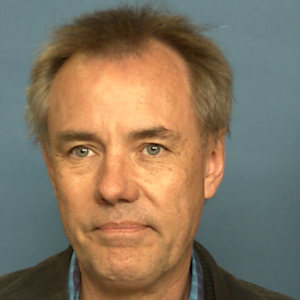
Dan-Eric Nilsson
Lund University
Professor, Functional Zoology
Dan-E. Nilsson is a professor of functional zoology at Lund University in Sweden. He is a fellow of the Royal Swedish Academy of Sciences and several other academic societies. He has founded and is heading The Lund Vision Group, which is an internationally leading center for comparative vision research. In his early career he discovered several new optical types of compound eyes in insects and crustaceans, and used these discoveries to explain the evolution and diversity of compound eyes. He later expanded his studies to the evolution of eyes and vision in general. Over more than four decades he has investigated vision in a wide range of animals from jellyfish to man and has combined behavioral biology, neurobiology, physics, and modelling to understand the evolution of vision. This work has involved development of novel methods for quantifying visual environments to predict animal behavior. He has co-authored the popular textbook Animal Eyes published by Oxford University Press.

Sean O'Donnell
Drexel University
Professor
Sean O'Donnell is a Professor of Biodiversity Earth & Environmental Science and Biology at Drexel University in Philadelphia. His research focuses on two main areas: thermal ecology and thermal performance physiology, and the development and evolution of nervous system investment. He mainly uses social insects (bees, ants, wasps and termites, as well as other arthropods such as social spiders) as models. He is especially interested in exploring how social structure affects species' responses to biotic and abiotic challenges.

Shannon Olsson
National Centre for Biological Sciences
Professor
Prof. Shannon Olsson is a chemical ecologist who listens to nature’s chemical conversations across India’s diverse ecosystems. Her science is committed to laying the foundation for a sustainable India, and her recent studies address ecological agriculture in India's coffee plantations, the impact of air pollution on our wild animals and insects, the effect of climate change on our ecosystem services, and the bioremediation of our ocean microplastics by marine sponges. A Fulbright Scholar, Ramanujan, and INK Fellow, Shannon’s research has been featured by Science Magazine, CNN, The Telegraph, USA Today, Chemical and Engineering News, TEDx, Syntalk, Sci-Illustrate, Dublin Science Gallery, V&A Museum London, and the DST Science Express train, among others. Since 2014, Shannon has been a faculty member at the National Centre for Biological Sciences, Tata Institute of Fundamental Research. She is currently Global Director of the echo network, an international social innovation partnership with the specific focus of increasing scientific awareness, engagement, and insight regarding our ecosystems. Shannon is, among other pursuits, currently a co-PI in the Biodiversity Collaborative, a founding member of ECOBARI (Ecosystem-based Adaptation for Resilient Incomes) and Global Director of the echo network. She also serves through the echo network’s international hub as Special Scientific Envoy to India with the Danish Academy of Technical Sciences (ATV) in close collaboration with the Danish Innovation Center in India (under the auspices of the MFA and the MHER).

Rachel Parkinson
University of Oxford
Researcher, Newton International Fellow
I am a neuroscientist interested in the effects of pollutants including agrochemicals on the brain and behaviour of insects. I completed my PhD at the University of Saskatchewan on the Canadian prairies where I showed that pesticides affect vision and flight behaviour in the locust, and linked this to similar effects in honeybees during a Grass Fellowship in 2019. Since 2020, I have been at the University of Oxford studying how diverse bee species detect pesticides in nectar, and working to understand what components of nectar are the most important to bees.
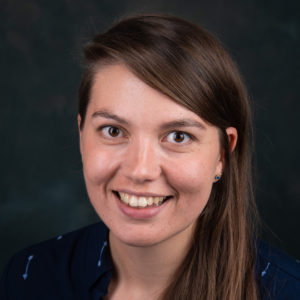
Rosalyn Putland
Centre for Environment, Fisheries, and Aquaculture Science
Bioacoustician
Dr Putland is an underwater acoustician who specializes in understanding how aquatic life may be affected behaviourally and physiologically by anthropogenic noise. This summer she was a Grass fellow at the Marine Biological Laboratory in Woods Hole, MA working on the auditory sensitivity of squid and potential for noise exposure to cause hair cell damage.
She is currently a senior scientist in the noise and bioacoustics team at the Centre for Environment, Fisheries and Aquaculture Sciences (CEFAS) in the UK. Her role is at the interface between research and policy utilising current knowledge on effects of noise on aquatic life at the cellular, organismal and population level to inform management strategies.
She completed her postdoctoral research at the University of Minnesota, USA using electrophysiology to study the neural mechanisms of behaviour in fish and her doctorate at the University of Auckland, New Zealand developing computational methods to detect and localize sound sources.

Kathryn Richmond
Allen Institute
Executive Vice President, Director Frontiers Group and Office of Science and Technology
Dr. Kathryn Richmond is an Executive Vice President at the Allen Institute, leading the Office of Science and Technology and The Paul G. Allen Frontiers Group. In this role, she leads initiatives across the Institute and oversees scientific strategy, government relations, and business development. With a focus on emerging bioscience and technology areas, she has dramatically grown the Frontiers Group portfolio, overseeing >$275M in award funding to date. Through identification of high-risk, high-reward opportunities, she has also formed >$50M in strategic philanthropic partnerships. Dr. Richmond frequently serves as an invited panel member, speaker and advisor on topics ranging from open science to technology development. She has convened the inaugural Bioscience and Philanthropy Summit, engaging thought pioneers, technologists, venture capital leaders and philanthropic funders from around the world. Previously, Dr. Richmond has served as a member of the executive team at the DOE Great Lakes Bioenergy Research Center. Along with a doctorate in Cell and Molecular Biology and an M.B.A. from the University of Wisconsin, Madison, she also attended Stanford University as an American Cancer Society fellow and was funded by DARPA for breakthrough research efforts.
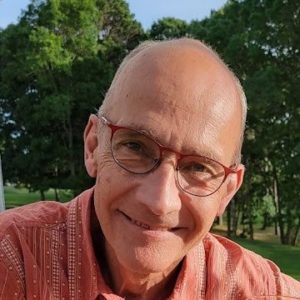
Felix Schweizer
University of California, Los Angeles
Professor of Neurobiology
Felix E. Schweizer was born in Basel, Switzerland and conducted his graduate research in the laboratory of Prof. Max M. Burger under the direction of Dr. Theo Schafer. He received his PhD degree in biochemistry summa cum laude from the University of Basel in 1989. From 1990 to 1994, he was a post-doctoral fellow in the Department of Molecular and Cellular Physiology at Stanford University in the laboratory of Prof. Richard W. Tsien. From 1994 to 1998, he was postdoctoral fellow in the Department of Neurobiology at Duke University in the laboratory of Professor George J. Augustine. Dr. Schweizer joined the Department of Neurobiology in the David Geffen School of Medicine at UCLA in 1998 as Assistant Professor and was promoted to Full Professor in 2010. Dr. Schweizer’s research interests concern the molecular mechanisms by which neurons communicate, the regulation of communication by neurons and how alterations in neuronal communication might contribute to neuronal diseases. The Schweizer laboratory uses electrophysiological and optical tools to investigate the dynamic molecular mechanisms underlying the regulation of neurotransmitter release. The lab is particularly interested in the role of protein ubiquitination in regulating neuronal excitability and synaptic transmission. In collaboration with Dr. James Wohlschlegel, they used multiplexed SILAC and identified synaptic proteins that are dynamically regulated. More recently in collaboration with Dr. David Krantz, the Schweizer lab is using pesticides linked to neuro-degenerative disorders as unbiased tools to identify novel pathways that might be involved in early signs of degeneration. In addition, the lab is characterizing transmission at the first synapse of the vestibular system, i.e. between utricular sensory hair cells and primary afferent neurons. In collaboration with Dr. Larry Hoffman, they are finding that changing the gravitational load alters synaptic structures. They are using serial EM and EM tomography in addition to physiology and cell biology to define in more detail the transfer function between head-movement input and afferent nerve-firing output.
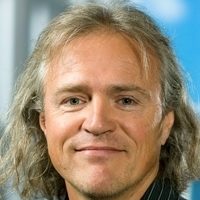
Hans Slabbekoorn
Leiden University
Professor Behavioural Biology
I did my BSc and MSc in Biology at Utrecht University (1988-1994), and got my PhD at Leiden University (1994-1998). After post-doctoral positions at San Francisco State University (1998-2001) and Leiden University (2001-2004), I became Assistant Professor in 2004, Associate Professor in 2012, and Full Professor in 2022 at Leiden University. During this time, I have also been away for brief periods as visiting professor at Paris Nanterre, France (2011), NFU, Harbin, China (2015), and FUB, Salvador, Brazil (2017).
My research theme is Acoustic Ecology & Behaviour, aiming at explaining and maintaining biodiversity in the Anthropocene. I studied primates, birds, fishes, marine mammals, and invertebrates, in the rainforests of Sumatera and Cameroon, the mountains of Ecuador and Colombia, and the lowlands of the Netherlands and surrounding Europe, including urban areas, highway strips, vessel lanes, airports, and offshore wind farms. I value diversity in the academic community and the scientific process.
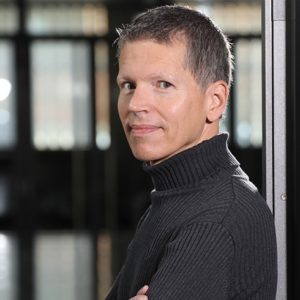
Wolfgang Stein
Illinois State University
Professor of Neurophysiology
- 2021/22: Senior Fellow, Alfried Krupp Institute for Advanced Science, Greifswald, Germany
- 2019: Full Professor of Neurophysiology (2015 Associate Professor, 2012 Assistant Professor), School of Biological Sciences, Illinois State University, Normal, IL, USA.
- 2006: Junior group leader at Ulm University, Germany
- Postdoc at Ulm University, Germany, University of Pennsylvania School of Medicine, Philadelphia, USA, and Bielefeld University, Germany
- 1998 PhD in Neurophysiology, University of Kaiserslautern, Germany
- 1995 MS in Biology, University of Kaiserslautern, Germany

Edda "Floh" Thiels
National Science Foundation (NSF)
Program Director
Edda “Floh” Thiels, program director in the Division of Integrative Organismal Systems of the Directorate for Biological Sciences at the National Science Foundation (NSF). Dr. Thiels earned a Ph.D. in Psychology from Indiana University, Bloomington, IN, and undertook postdoctoral training in Behavioral Neuroscience at the University of Pittsburgh. Prior to joining the NSF, she conducted research at the Institute of Theoretical Biology in Angers, France, and was on the faculty of the Department of Neurobiology at the University of Pittsburgh School of Medicine, where she remains an adjunct faculty. Her laboratory studied bidirectional plasticity of hippocampal synapses and experience-dependent alterations in brain circuits involved in reward learning and addiction. At the NSF, she leads the Modulation Program, which supports research on the neural mechanisms that mediate organism-environment interactions, and she serves as program director for multiple NSF-wide programs.
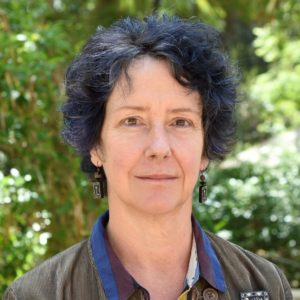
Stephanie White
University of California, Los Angeles
Professor, Integrative Biology and Physiology
Professor Stephanie White is an expert on how social interactions influence the brain. Her work integrates behavioral, physiological and molecular mechanisms within a systems biology framework. Her research group investigates vocal learning and the underlying neural circuitry using songbirds and searches for broader principles that underlie sensorimotor learning during developmental critical periods akin to speech and language learning. She served as co-Director of the Grass Laboratories at the Marine Biological Labs in Woods Hole, MA, USA from 2009-11. There, she currently co-directs the Neural Systems & Behavior course each June and July. As chair of UCLA’s undergraduate Neuroscience Interdepartmental Program, she is responsible for the training of >800 STEM undergraduates and serves as the Assistant Director for Undergraduate Education for UCLA’s Brain Research Institute.
